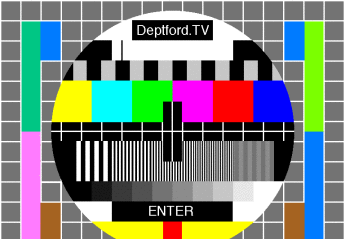IS4CWN was held in Berlin 2nd to 4th October at cBase home of Freifunk celbrating a decade of wireless freenetworking. James Stevens travelled there with Alexei Blinov and was reunited with long term Consume collaborator Julian Priest (nz) currently living in Pisa Italy.
 Juergen Neuman ( freifunk ) arranged for us all to stay in the old pig sty at K9 a housing commune/bar. Then, 3 days of workshops, Wednesday 2nd, Thursday 3rd and Friday 4th during which time we listened, questioned and exchanged information with the many international community wireless network groups represented.
Juergen Neuman ( freifunk ) arranged for us all to stay in the old pig sty at K9 a housing commune/bar. Then, 3 days of workshops, Wednesday 2nd, Thursday 3rd and Friday 4th during which time we listened, questioned and exchanged information with the many international community wireless network groups represented.
 The first day we spent visiting the three presentation rooms as well as enjoying the hospitality at cBase. In the afternoon Julian Priest presented the picosat project ‘weight of information‘ and we met with Luka Mustafa from Ljubljana who has spent three years in London at uni and returned to europe with a 3D printed prototype of gigabit optical networking solution inspired by Ronja. Met with Rodger of Guifi.net (topnotch) Attended a range of sessions… see timetable. lots of drinking all day then diner with Juergen, Alexei and Julian.
The first day we spent visiting the three presentation rooms as well as enjoying the hospitality at cBase. In the afternoon Julian Priest presented the picosat project ‘weight of information‘ and we met with Luka Mustafa from Ljubljana who has spent three years in London at uni and returned to europe with a 3D printed prototype of gigabit optical networking solution inspired by Ronja. Met with Rodger of Guifi.net (topnotch) Attended a range of sessions… see timetable. lots of drinking all day then diner with Juergen, Alexei and Julian.
 After a morning spent recovering from the night before and a lovely walk along the river, met with Richard from Austin wireless and talked about Borgfest his latest project, also talked with Sam of Occupy London and Hacklab London who showed a fantastic video playback project (link lost). Spent short periods in a selection of sessions till Freifunkers celebrated ten years meshness.
After a morning spent recovering from the night before and a lovely walk along the river, met with Richard from Austin wireless and talked about Borgfest his latest project, also talked with Sam of Occupy London and Hacklab London who showed a fantastic video playback project (link lost). Spent short periods in a selection of sessions till Freifunkers celebrated ten years meshness. Thursday evening keynote from Amelia Anderstrotter of German Pirate Party . Diner with Juergen and gf Julian, Alexei and joined by Ramon Rocco (guifi.net) and Axel Nuemann (Batman)
Thursday evening keynote from Amelia Anderstrotter of German Pirate Party . Diner with Juergen and gf Julian, Alexei and joined by Ramon Rocco (guifi.net) and Axel Nuemann (Batman)
Met with Robert Horvitz from Open Spectrum Alliance he invited us to attend his exhibition in London at glasshouse trust gallery (weird link) attended many session including one of the last on Friday explaining progress on libre-mesh.org a very recent collaboration of  AlterMesh (from AlterMundi, Argentina), qMp (from guifi.net, Catalunya), eigenNet (from eigenLab, Ninux, Italia). This was the most inspiring and fascinating moments of the summit.. pure technical insight and progressive utilisation of BATMAN eXtended (layer2), BMX (layer3) to hugely extend the scope and scale of future networks.. brilliant.
AlterMesh (from AlterMundi, Argentina), qMp (from guifi.net, Catalunya), eigenNet (from eigenLab, Ninux, Italia). This was the most inspiring and fascinating moments of the summit.. pure technical insight and progressive utilisation of BATMAN eXtended (layer2), BMX (layer3) to hugely extend the scope and scale of future networks.. brilliant.
Finished off talking with Sven-Ola architect of much freifunk advanced work as we plan to offer VLAN exchange with SPC in London and complete the 11 year round trip of BerLon!

